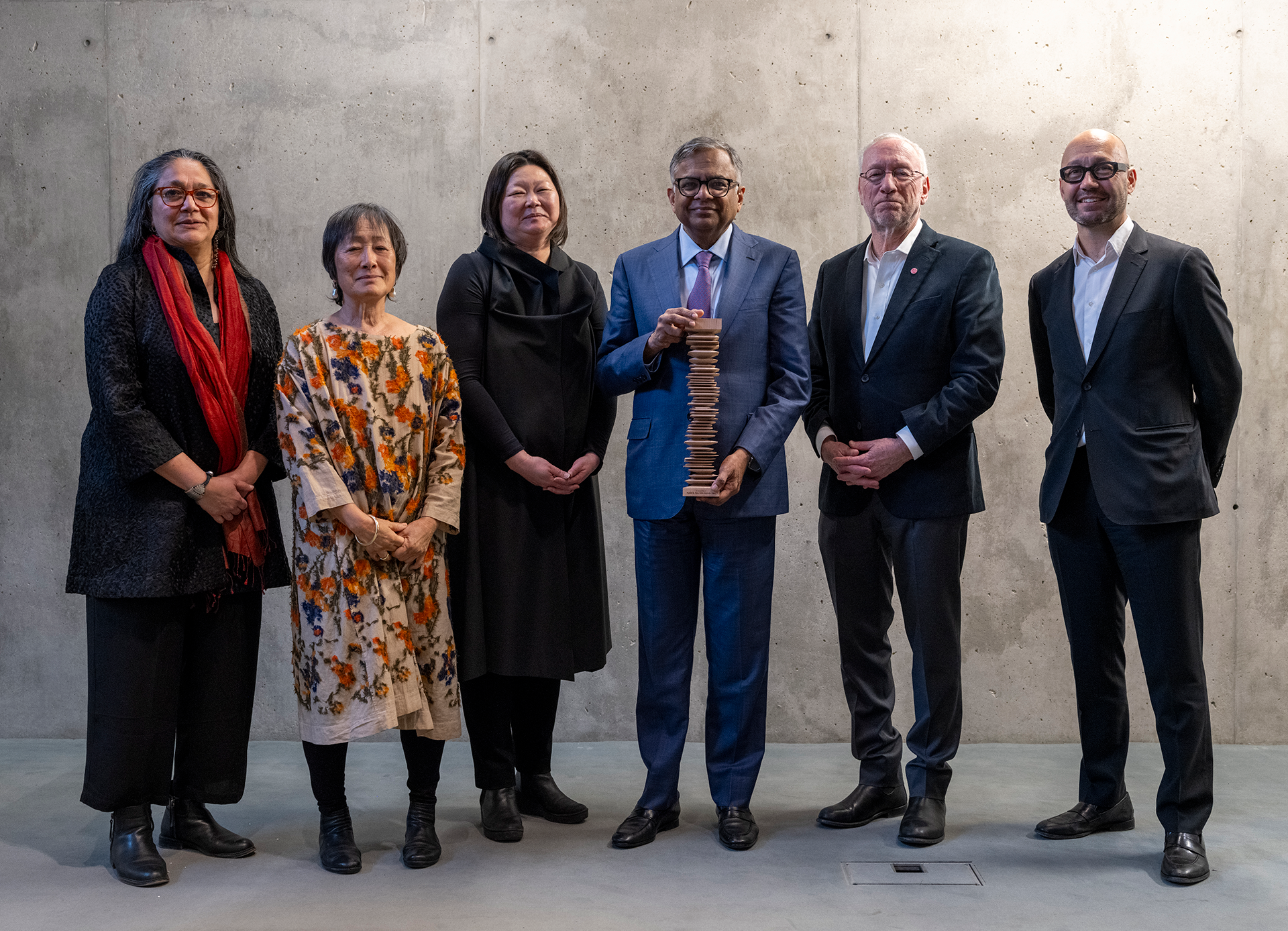Faculty, staff, students, and invited guests filled Milstein Hall Auditorium on April 16 for the presentation of the inaugural Ratan N. Tata Distinguished Alumni Award, which was established by Cornell’s College of Architecture, Art, and Planning and named in Tata’s (’59, B.Arch. ’62) honor prior to his passing in 2024. Also its first recipient, the award celebrates Tata’s global influence and lifelong philanthropic commitment to initiatives spanning education, research, health, and the built environment. Going forward, it will recognize AAP alumni who similarly use their Cornell education to foster positive change in the world.
“There are few individuals whose lives and impact can truly be called transformative. Ratan Tata was one,” Cornell President Michael I. Kotlikoff shared during the award ceremony, highlighting Tata’s extensive philanthropic work in India and around the globe, including at Cornell through his support of research, technology, and scholarship. Tata was the university’s largest international donor, as well as a Cornell trustee and AAP’s longest-serving Advisory Council member.
“Like Ezra Cornell,” Kotlikoff continued, “he saw education as the best possible investment to do the greatest good. Over the course of decades, Ratan Tata invested over and over for the greatest good, applying his businessman’s mind and his philanthropist’s heart to the world’s pressing needs.”
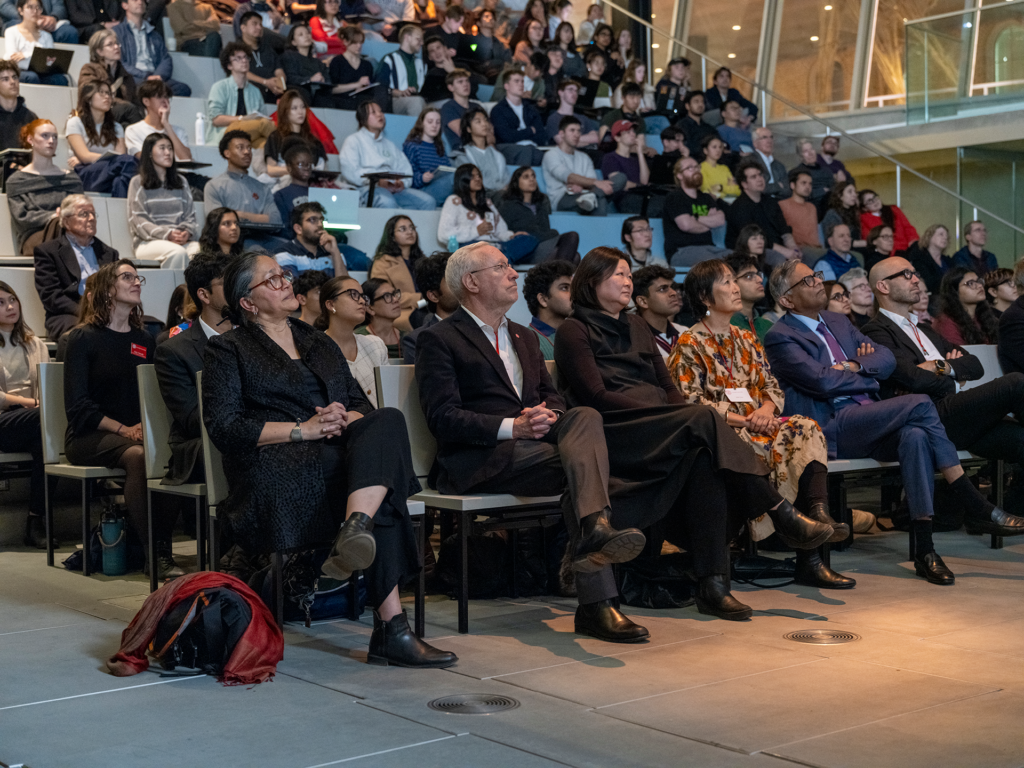
Tata first arrived at Cornell in 1955, initially studying engineering but later transferring to AAP to pursue an architecture degree. After graduation, he briefly worked as an architect in Los Angeles before returning to Mumbai to take up a position in his family’s business, Tata Sons, the holding company for the Tata Group’s diverse business interests. He ultimately led the conglomerate as chairman from 1991 until 2012, during which it grew exponentially, reaching $100 billion in annual revenues. He credited his Cornell training in architecture and design as a significant contributing factor to his success as an industrialist, helping to cultivate his problem-solving skills. When he stepped down as chair of Tata Sons, Tata became chairman of the Tata Trusts, the largest private-sector philanthropic organization in India.
“Ratan took this challenge of how things ‘ought to be’ deeply personally,” J. Meejin Yoon, Gale and Ira Drukier Dean of Architecture, Art, and Planning, told the gathered audience. “Though he didn’t pursue architecture as a career in strict terms, he understood design to be about how we want to live and interact with each other and the world around us, ultimately a practice in how to imagine, enable, and build a better world. And so, we are here today because Ratan has brought the world closer to how it ought to be.”
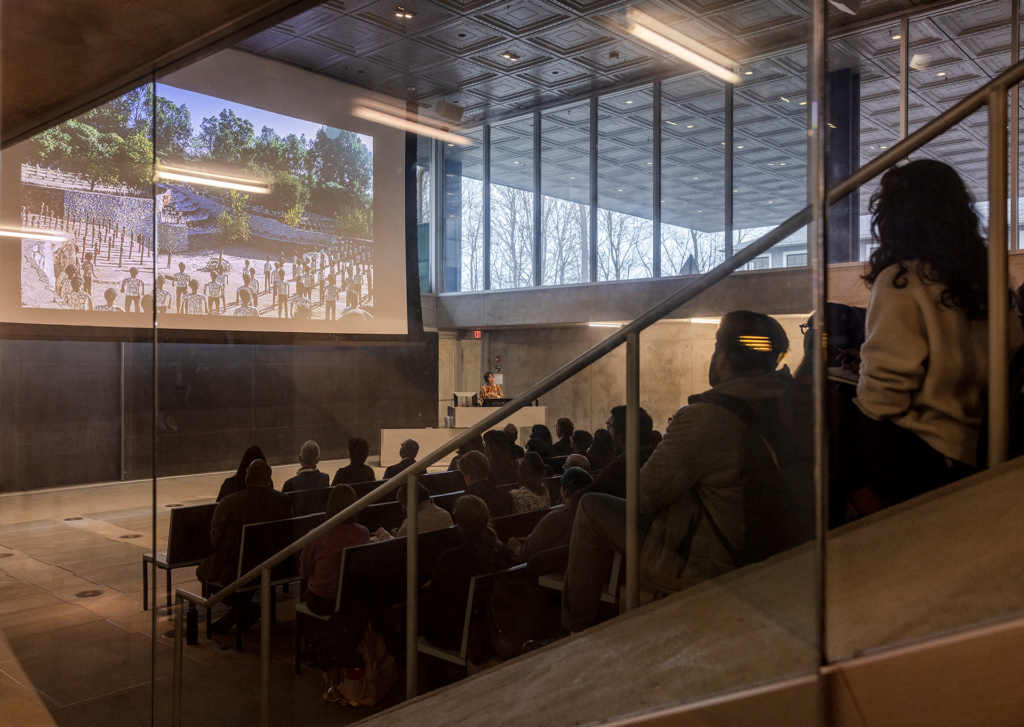
Architect Billie Tsien, cofounding partner of Tod Williams Billie Tsien Architects, then took the podium to share insights she gained while working on a 23-acre technology campus for Tata Consultancy Services. At the start of the project, she and her team were encouraged by Tata to travel throughout India to investigate its culture and history, and that “gift of travel” profoundly influenced the resulting designs. Reflecting back on this experience, she shared that “I think perhaps more than ever now is the time when we as architects can think about and dedicate our lives to making the world a more welcoming place, a place that accepts all people of all kinds, because that is what we can bring and that is what we can give. I thank Mr. Tata for this gift because it truly has changed my life, as his other gifts have changed the lives of so many other people.”
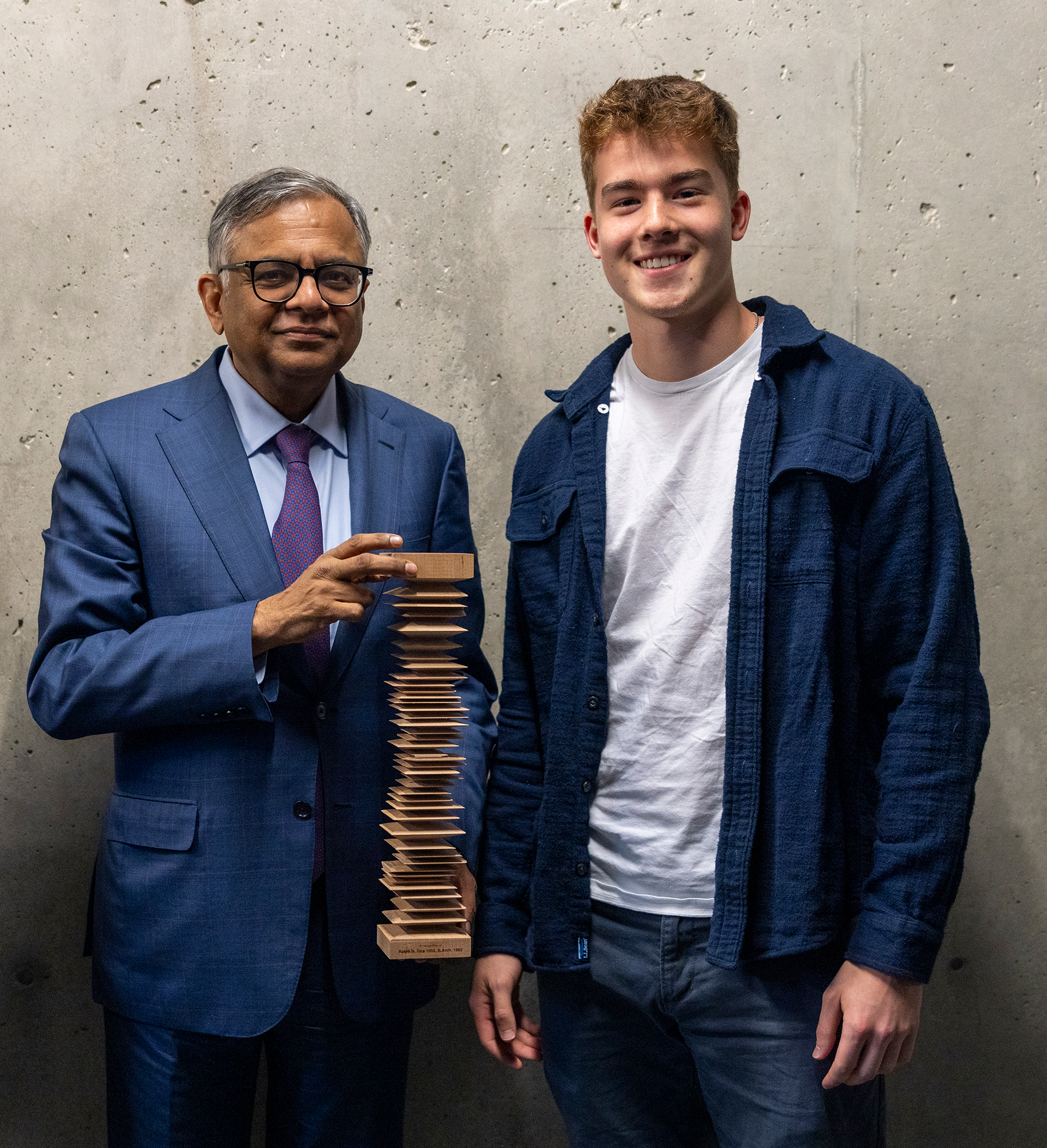
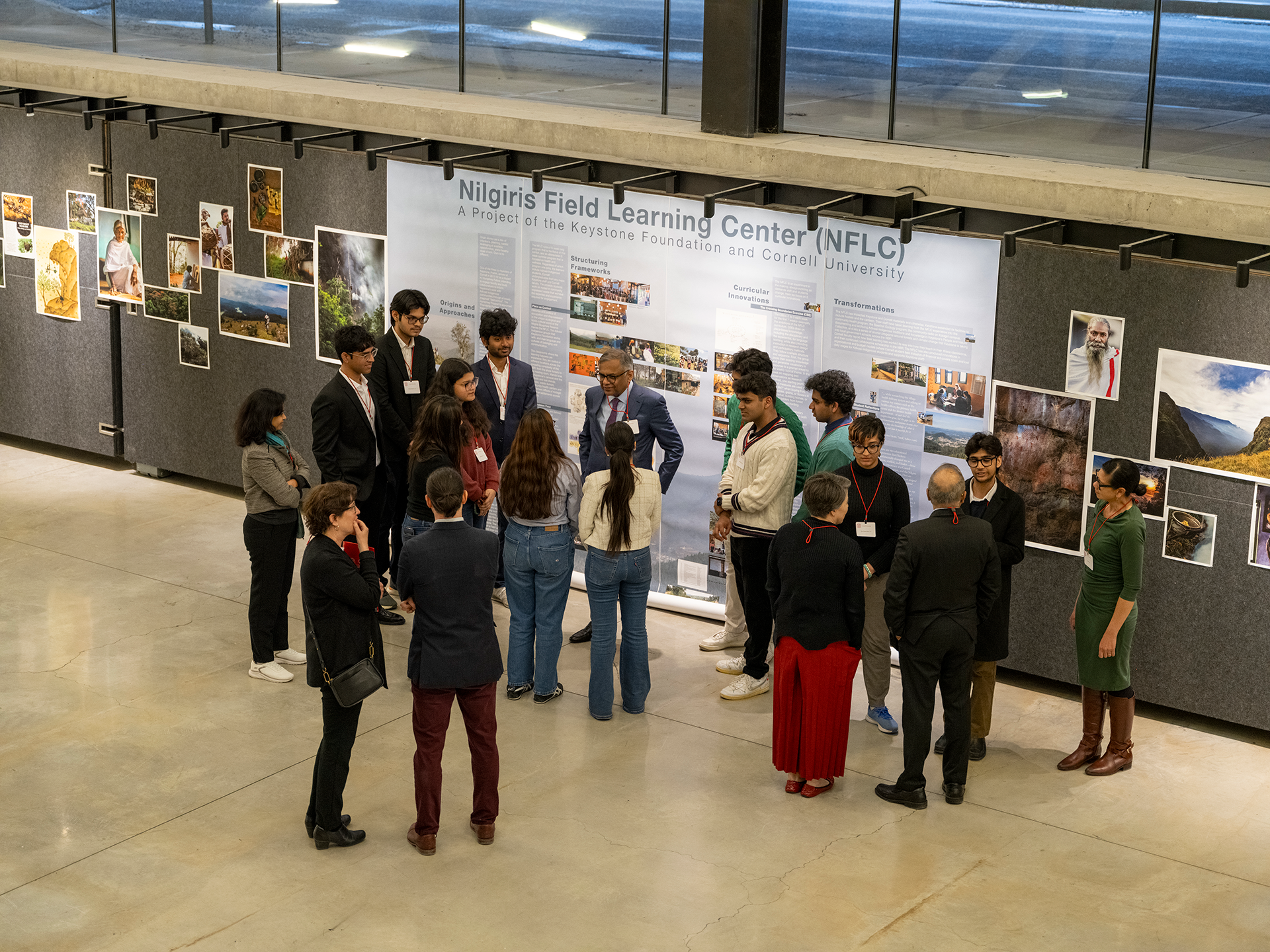
Following Tsien’s remarks, Yoon presented the award, engraved on the base of a cherrywood model designed by first-year architecture student Blake Zimmerman (B.Arch. ’29), to Natarajan Chandrasekaran, Chairman of Tata Sons, who accepted on Tata’s behalf and shared with the gathered audience insights into a more private side of Tata. “He was a very quiet person, and he was a person to be discovered. He was never a person who just spoke a lot of words and said anything that came to mind,” Chandrasekaran said of his former boss, mentor, and dear friend. “I feel in a way he was a person of many kinds. He was an architect, he was a businessman, he was a philanthropist, he was a dog lover, he was a compassionate human being, and many other things, but that’s why I think he was one of a kind.”
The event also included the screening of a brief tribute film, highlighting the cascading impact of Tata’s generosity. Towards its conclusion, Yash Moitra (’27), a recipient of Cornell’s Tata Scholarship for Students from India, stressed that he considers it “my moral imperative that if I ever get to the stature that Mr. Tata got to, or even close, I would love to recreate some of this for someone else. And I wish that Mr. Tata would have been here today to see where we are. And I hope that we can do his legacy some fraction of justice.”
Fittingly, the Ratan N. Tata Distinguished Alumni Award will now serve as a way to inspire fellow AAP alumni who share Tata’s commitment to what he referred to simply as “doing good in the world.”
